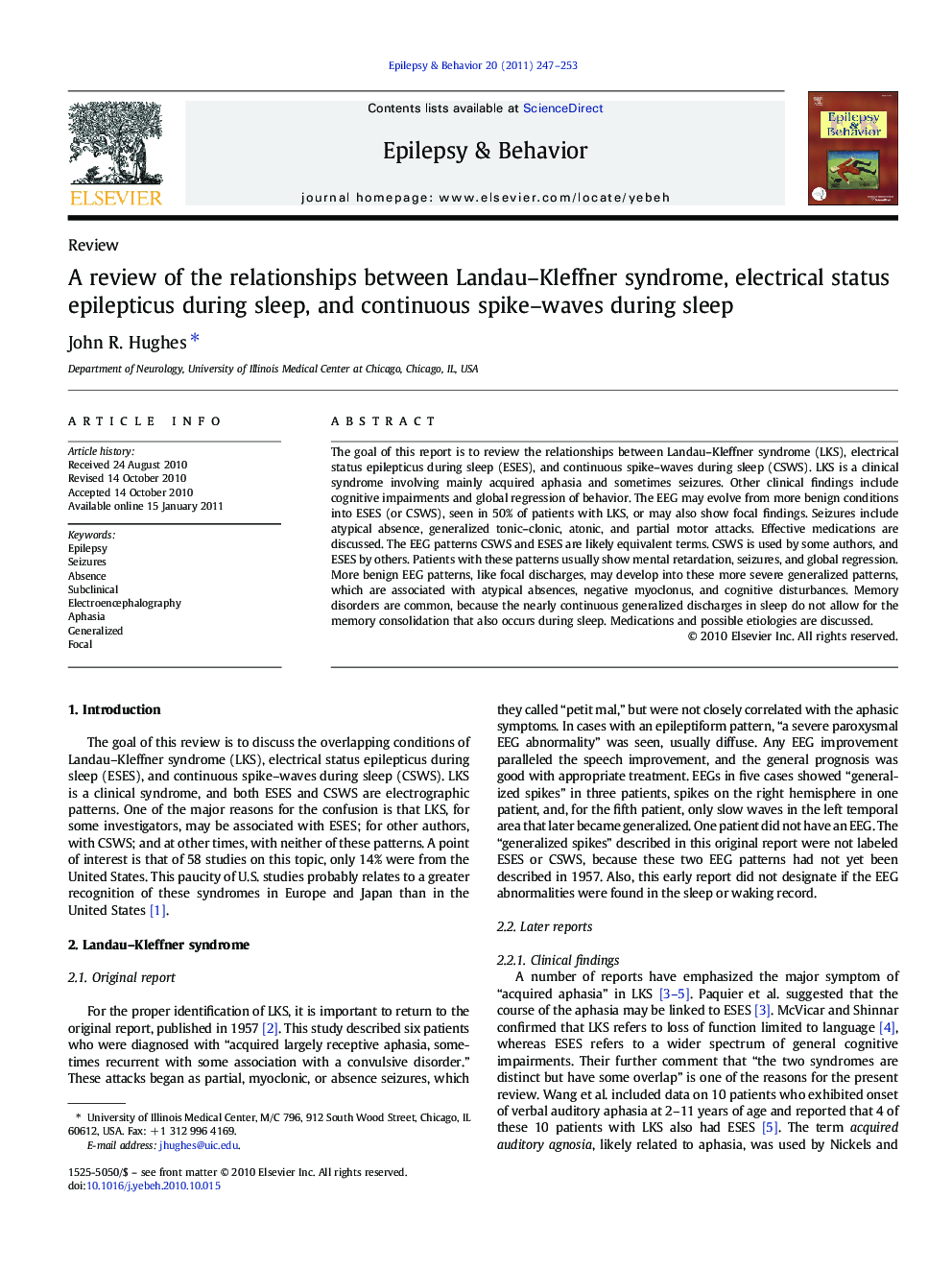| Article ID | Journal | Published Year | Pages | File Type |
|---|---|---|---|---|
| 6014682 | Epilepsy & Behavior | 2011 | 7 Pages |
The goal of this report is to review the relationships between Landau-Kleffner syndrome (LKS), electrical status epilepticus during sleep (ESES), and continuous spike-waves during sleep (CSWS). LKS is a clinical syndrome involving mainly acquired aphasia and sometimes seizures. Other clinical findings include cognitive impairments and global regression of behavior. The EEG may evolve from more benign conditions into ESES (or CSWS), seen in 50% of patients with LKS, or may also show focal findings. Seizures include atypical absence, generalized tonic-clonic, atonic, and partial motor attacks. Effective medications are discussed. The EEG patterns CSWS and ESES are likely equivalent terms. CSWS is used by some authors, and ESES by others. Patients with these patterns usually show mental retardation, seizures, and global regression. More benign EEG patterns, like focal discharges, may develop into these more severe generalized patterns, which are associated with atypical absences, negative myoclonus, and cognitive disturbances. Memory disorders are common, because the nearly continuous generalized discharges in sleep do not allow for the memory consolidation that also occurs during sleep. Medications and possible etiologies are discussed.
Research Highlights⺠Fifty percent of patients with Landau-Kleffner syndrome develop electrical status epilepticus during sleep/continuous spike-waves during sleep. ⺠Generalized seizures occurring in patients with Landau-Kleffner syndrome include absence, secondarily generalized tonic-clonic, and atonic seizures and occasionally focal motor seizures. ⺠Patients with electrical status epilepticus during sleep/continuous spike-waves during sleep often exhibit memory problems because consolidation of memories does not usually occur in the presence of nearly continuous generalized discharges.
